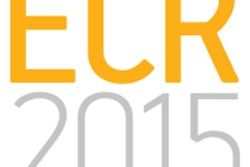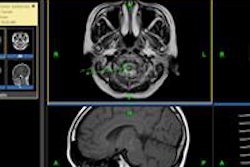A proposal that would make it easier for physicians to get medical licenses across state lines could potentially boost access to care in underserved areas and stimulate the growth of telemedicine, according to a column published online in the Journal of the American Medical Association.
Called the Interstate Medical Licensure Compact, the proposal has been formulated by representatives of state medical boards under the auspices of the Federation of State Medical Boards. It would enable eligible physicians to apply to a newly created interstate commission for expedited licensure in participating states, rather than having to apply directly to one of the 70 medical and osteopathic boards within the U.S. and its territories, according to Dr. Robert Steinbrook of Yale School of Medicine.
The expedited license would be considered a new state license and would carry the same weight as a license a physician would receive by applying to another state directly, currently a time-consuming and costly process for those who want to practice telemedicine and teleradiology across state lines.
The impetus for the proposal comes in part from sparsely populated areas of the U.S. that are heavily reliant on physicians who live in other states for healthcare services, Steinbrook noted in his JAMA Viewpoint article (July 28, 2014).
He pointed to Wyoming as an example. Of the 3,200 physicians with active Wyoming medical licenses, only about 40% live in the state. Furthermore, 76% of the licensees have at least two state licenses.
"Encouraging the growth of telemedicine as well as the ability of physicians from regional health systems to provide care in the state could have clear advantages," he wrote.
Under the proposed compact, the practice of medicine would be considered to occur where the patient is located, as is currently the case. Physicians would be under the jurisdiction of the patient's state, as would any subsequent investigations, discipline, or, presumably, malpractice claims, Steinbrook wrote. Furthermore, the state boards participating in the compact would be required to share complaint and investigative information with each other.
Eligibility for the program would be limited to physicians who meet the following criteria:
- Possess a full and unrestricted medical license in any state covering at least the past three years
- Have a full and unrestricted medical license issued by a medical board in a state that is a member of the compact
- Have successfully completed a graduate medical education approved by the Accreditation Council for Graduate Medical Education or the American Osteopathic Association
- Possess specialty certification or a time-unlimited specialty certificate recognized by the American Board of Medical Specialties or the American Osteopathic Association's Bureau of Osteopathic Specialists
- Have no convictions for "a felony, gross misdemeanor, or crime of moral turpitude"
- Are not subject to discipline related to a medical license by a licensing agency, excluding actions related to nonpayment of license fees
- Never had a controlled substance license or permit suspended or revoked by a state or the U.S. Drug Enforcement Administration
- Are not under active investigation by a law enforcement or medical licensing agency
If enacted, the compact would be a legally binding agreement between participating states and a component of state law. Eligibility criteria and other specifics may change, as the interstate licensure compact hasn't been finalized, according to Steinbrook.
"For example, the draft compact does not include criteria related to the number of years in practice or to maintenance of certification," he wrote. "Another unresolved issue is the demand among physicians for additional state medical licenses. Although it is likely that an increasing proportion of medical care will be delivered through telemedicine, the rate of growth will be influenced by factors specific to telemedicine, including the technologies, patients' needs, standards of care, and reimbursement policies."
If they are found eligible by their state of principle license, physicians could apply for expedited licenses in other member states through a newly created interstate commission.
"The expedited license would be a new state license that would be the same license a physician would receive if applying to another state directly," Steinbrook wrote. "It would not be a multistate license or a national license; the physician would select the states and pay the required fees to the states and the interstate commission."
While the compact would represent a major medical licensing reform, its actual influence on practice would likely be gradual, and there would be no effect on physicians seeking additional state licenses until multiple states enacted the compact, according to Steinbrook.
"The Federation of State Medical Boards hopes to finalize the compact in 2014, so that in 2015 state legislatures could consider bills that would incorporate the compact into state law," he wrote. "The licensing and other fees for physicians have yet to be set. Although the rationale for the compact is strong, a sufficient number of states will now have to enact it."




















